Related Research Articles
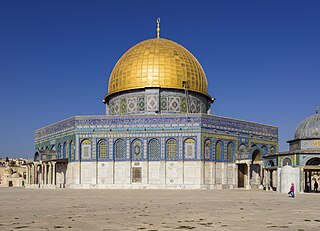
The history of the State of Palestine describes the creation and evolution of the State of Palestine in the West Bank and Gaza Strip. During the British mandate period, numerous plans of partition of Palestine were proposed but without the agreement of all parties. In 1947, the United Nations Partition Plan for Palestine was voted for. The leaders of the Jewish Agency for Palestine accepted parts of the plan, while Arab leaders refused it. This triggered the 1947–1949 Palestine war and led, in 1948, to the establishment of the state of Israel on a part of Mandate Palestine as the Mandate came to an end.
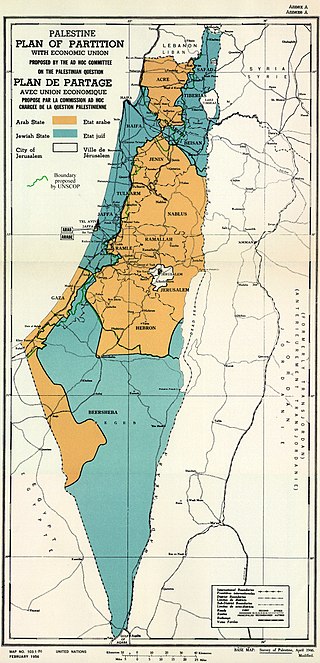
The United Nations Partition Plan for Palestine was a proposal by the United Nations to partition Mandatory Palestine at the end of the British Mandate. Drafted by the U.N. Special Committee on Palestine (UNSCOP) on 3 September 1947, the Plan was adopted by the UN General Assembly on 29 November 1947 as Resolution 181 (II). The resolution recommended the creation of independent but economically linked Arab and Jewish States and an extraterritorial "Special International Regime" for the city of Jerusalem and its surroundings.
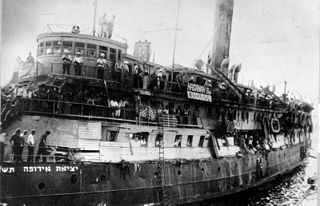
A homeland for the Jewish people is an idea rooted in Jewish history, religion, and culture. The Jewish aspiration to return to Zion, generally associated with divine redemption, has suffused Jewish religious thought since the destruction of the First Temple and the Babylonian exile.
Issues relating to the State of Israel and aspects of the Arab–Israeli conflict and more recently the Iran–Israel conflict occupy repeated annual debate times, resolutions and resources at the United Nations. Since its founding in 1948, the United Nations Security Council, has adopted 79 resolutions directly related to the Arab–Israeli conflict as of January 2010.

The Committee on the Exercise of the Inalienable Rights of the Palestinian People (CEIRPP) is a committee mandated by the United Nations General Assembly in order to promote the rights of the Palestinian people, support the peace process and to mobilize assistance to the Palestinian people.

The International Day of Solidarity with the Palestinian People is a UN-organized observance. Events are held at the United Nations headquarters in New York, as well as at the United Nations offices at Geneva, Vienna and Nairobi. It is generally held on November 29 each year to mark the anniversary of resolution 181 which advocated for the partition of Palestine into two States: one Arab and one Jewish. In 2003, it was observed on December 1.

The United Nations General Assembly Resolution 194 is a resolution adopted near the end of the 1947–1949 Palestine war. The Resolution defines principles for reaching a final settlement and returning Palestine refugees to their homes. Article 11 of the resolution resolves that
refugees wishing to return to their homes and live at peace with their neighbours should be permitted to do so at the earliest practicable date, and that compensation should be paid for the property of those choosing not to return and for loss of or damage to property which, under principles of international law or equity, should be made good by the Governments or authorities responsible.
United Nations General Assembly Resolution 3236, adopted by the 29th Session of the General Assembly on November 22, 1974, recognizes the Palestinian people's right to self-determination, officializes United Nations contact with the Palestine Liberation Organization, and adds the "Question of Palestine" to the U.N. Agenda.
The Lausanne Conference of 1949 was convened by the United Nations Conciliation Commission for Palestine (UNCCP) from 27 April to 12 September 1949 in Lausanne, Switzerland. Representatives of Israel, the Arab states Egypt, Jordan, Lebanon and Syria, and the Arab Higher Committee and a number of refugee delegations were in attendance to resolve disputes arising from the 1948 Arab–Israeli War, mainly about refugees and territories in connection with Resolution 194 and Resolution 181.
The United Nations Division for Palestinian Rights (UNDPR) is a part of the Department of Political Affairs of the United Nations Secretariat.

The Palestinian right of return is the political position or principle that Palestinian refugees, both first-generation refugees and their descendants, have a right to return and a right to the property they themselves or their forebears left behind or were forced to leave in what is now Israel and the Palestinian territories during the 1948 Palestinian expulsion and flight and the 1967 Six-Day War. As of 2024 this right does not exist.
Issues relating to the State of Palestine and aspects of the Israeli–Palestinian conflict occupy continuous debates, resolutions, and resources at the United Nations. Since its founding in 1948, the United Nations Security Council, as of January 2010, has adopted 79 resolutions directly related to the Arab–Israeli conflict.
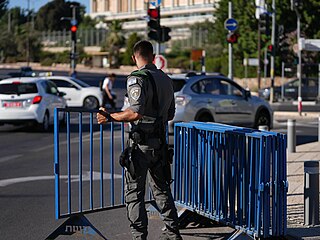
The United Nations General Assembly Resolution 43/177 of 15 December 1988 was a resolution in which the United Nations General Assembly acknowledged the proclamation of the State of Palestine and the use of the designation "Palestine", referring to the PLO in the UN. Further, the Assembly affirmed the need for sovereignty by the Palestinian people over their territory occupied in 1967 by Israel. The resolution is titled "43/177. Question of Palestine".

The United Nations General Assembly Resolution 43/176 of 15 December 1988 was a resolution in which the General Assembly called for the convening of an International Peace Conference on the Middle East, under the auspices of the United Nations. The resolution is titled "43/176. Question of Palestine". The peace conference was proposed in the framework of international politics.
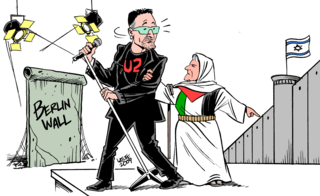
The United Nations General Assembly Resolution 58/292 of 6 May 2004 was a resolution in which the United Nations General Assembly affirmed that the status of the Palestinian territory occupied since 1967, including East Jerusalem, remains one of military occupation, and that Israel has only the duties and obligations of an occupying Power under the Geneva Convention relative to the Protection of Civilian Persons and the Hague Convention.

Mandatory Palestine was a geopolitical entity that existed between 1920 and 1948 in the region of Palestine under the terms of the League of Nations Mandate for Palestine.
The Palestine Liberation Organization (PLO) declared the establishment of the State of Palestine on November 15, 1988. As of June 2024, the State of Palestine is recognized as a sovereign state by 145 of the 193 member states of the United Nations. It is a non-member observer state at the United Nations since November 2012. This limited status is largely due to the United States, a permanent member of the Security Council with veto power, has consistently used its veto or threatened to do so to block Palestine’s full membership to UN. The existence of a state of Palestine is recognized by the states that have established bilateral diplomatic relations with it. There is a wide range of views on the legal status of the State of Palestine, both among international states and legal scholars.

The London Conference of 1946–1947, which took place between September 1946 and February 1947, was called by the British Government of Clement Attlee to resolve the future governance of Palestine and negotiate an end of the Mandate. It was scheduled following an Arab request after the April 1946 Anglo-American Committee of Inquiry report.
References
- ↑ 32/40 Question of Palestine, A/RES/32/40(A+B), 2 December 1977